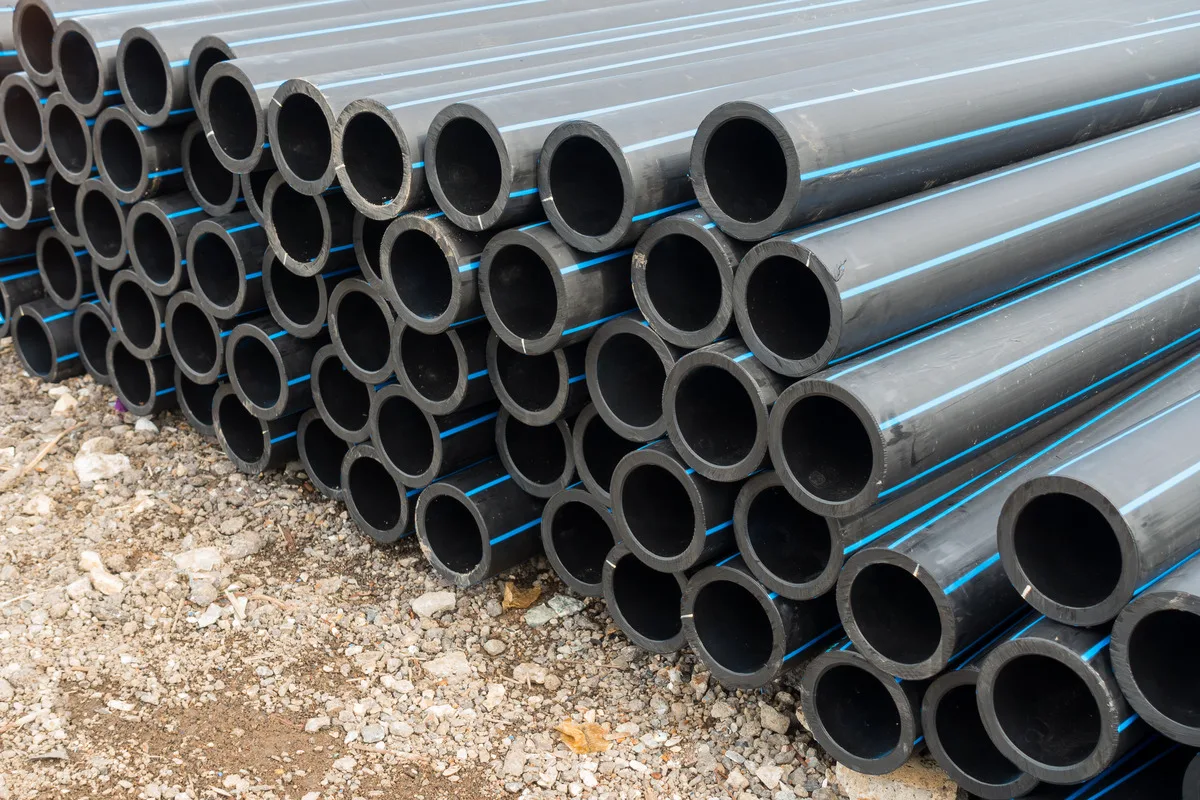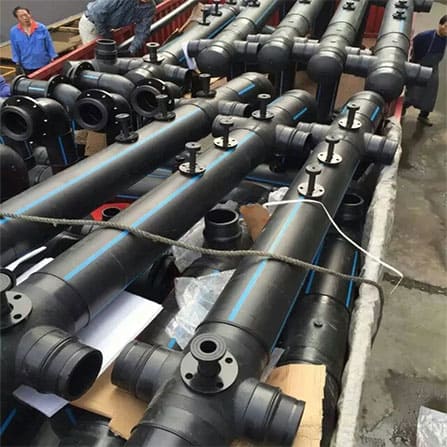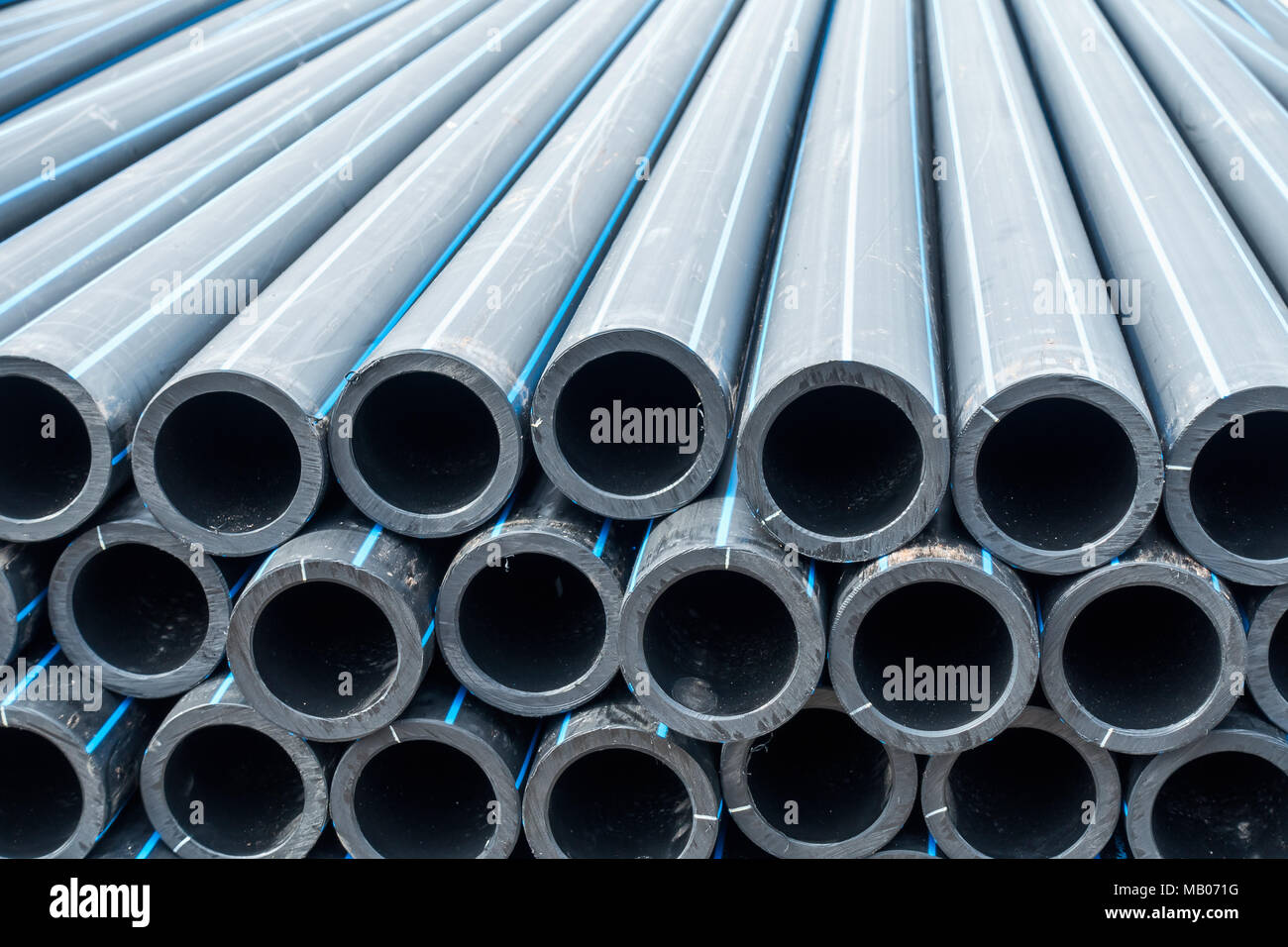Steps to take before contacting a Pipeline Manufacturer
Pipeline Manufacturer Spotlight: Discover the very best in the Industry for Your Following Project
In the domain name of pipeline manufacturing, the option of maker can significantly influence the result of your project. With a selection of business supplying cutting-edge solutions and innovative materials, understanding the vital standards for choice becomes essential. Sector leaders like Tenaris, Vallourec, and U.S. Steel go to the leading edge of providing sustainable and trustworthy options. Nonetheless, the question stays: what specific factors should lead your decision-making process, and just how do these producers distinguish themselves in an increasingly open market? Checking out these facets might reveal insights that could affect your following task's success.
Industry Introduction
In the pipeline manufacturing field, there exists a dynamic interplay of technological improvements and regulatory demands that forms market practices. This market is important for the transport of oil, gas, water, and various other liquids, demanding a robust understanding of both material properties and environmental impacts. Manufacturers are increasingly integrating sophisticated materials and ingenious production methods to enhance the durability and performance of pipelines, ensuring they can stand up to differing stress and ecological problems.

On top of that, the surge of digital innovations has changed conventional manufacturing procedures, enabling for boosted surveillance and anticipating maintenance. This change not only boosts operational performance but likewise helps in alleviating prospective failings before they escalate right into critical issues. In general, the landscape of pipeline manufacturing is characterized by a constant advancement driven by innovation and compliance, placing the field for future growth and sustainability.
Secret Requirements for Option
Choosing the appropriate pipeline producer includes cautious factor to consider of several essential standards that ensure reliability, performance, and compliance with market criteria. Analyze the producer's experience and online reputation within the sector. A reputable firm with a tried and tested performance history is more probable to deliver high-quality items and solutions.
Next off, review the array of products and requirements offered. Manufacturers should offer a variety of alternatives that deal with varied project needs, consisting of different pipe dimensions, materials, and coating systems. Conformity with pertinent industry criteria, such as ASTM or API, is essential, as it guarantees the items fulfill safety and security and efficiency standards.
Additionally, think about the maker's technological capabilities. Advanced manufacturing methods and quality assurance steps can greatly impact the resilience and efficiency of the pipes. Client service and support are also crucial; a knowledgeable and receptive team can facilitate smoother task execution and attend to any worries without delay.
Evaluate rates structures and lead times. While cost-effectiveness is necessary, it needs to not jeopardize quality. Stabilizing these criteria will certainly cause an educated decision that straightens with project objectives and regulative demands.
Leading Pipeline Manufacturers
In the competitive landscape of pipeline manufacturing, numerous industry leaders stick out for their innovative modern technologies and commitment to sustainability. These leading manufacturers not only master supplying high-grade products yet also prioritize ecologically liable practices in their operations. A review of their contributions supplies beneficial insights into the future of pipeline remedies.
Industry Leaders Summary
Exactly how do sector leaders shape the pipeline manufacturing landscape? The top pipeline suppliers play a vital role in developing market standards, driving innovation, and assuring quality control throughout the supply chain. Companies such as Tenaris, Vallourec, and united state Steel have established criteria for safety and security, sustainability, and performance, affecting not just their operations yet likewise their competitors.
These leaders invest significantly in r & d to enhance product sturdiness and effectiveness. Their dedication to sticking to governing conformity and worldwide requirements cultivates consumer count on and motivates industry-wide adoption of best techniques. Furthermore, they usually collaborate with stakeholders, consisting of designers and building and construction companies, to ensure that their products meet details task demands and environmental considerations.
Market leaders also focus on client relationships, offering customized services and remarkable service, which reinforces their market placement. By leveraging economies of scale, they can deliver affordable pricing without endangering high quality. Ultimately, the influence of these producers expands beyond their products; they form the future of pipeline technology and manufacturing procedures, guaranteeing a resistant and lasting facilities for various sectors worldwide.
Ingenious Technologies Provided
What innovative modern technologies are transforming the pipeline manufacturing industry? In recent years, top pipeline manufacturers have actually welcomed sophisticated innovations to boost performance, dependability, and safety in their operations. One substantial advancement is the assimilation of smart pipeline tracking systems, utilizing Net of Things (IoT) sensing units. These systems offer real-time data on pipeline conditions, allowing positive upkeep and reducing the threat of leakages or failings.
Additionally, makers are increasingly adopting sophisticated products, such as composite pipes, which supply enhanced durability and resistance to corrosion. These materials not only extend the life expectancy of pipes yet likewise decrease operational expenses gradually. Additive manufacturing, or 3D printing, is transforming the production process. This technology enables quick prototyping and customization of elements, enhancing supply chains and lowering waste.
Fabricated intelligence (AI) and artificial intelligence algorithms are likewise gaining grip, maximizing layout procedures and anticipating upkeep routines. By examining large datasets, these innovations aid identify potential problems before they develop, boosting security and operational effectiveness. As these ingenious technologies continue to advance, they assure to form the future of pipeline manufacturing, ensuring that tasks can be finished on schedule and within budget while maintaining miraculous security standards.
Sustainability Practices Highlighted
The ongoing advancements in cutting-edge innovations within the pipeline manufacturing sector are matched by an expanding focus on sustainability methods amongst top producers. These companies are significantly embracing environment-friendly methods, lowering waste, and decreasing their carbon footprints throughout the production process.
Leading makers are prioritizing making use of recycled materials, enhancing the lifecycle of their products. By implementing closed-loop systems, they successfully use resources, consequently decreasing the ecological impact linked with resources extraction and processing. Additionally, many companies are investing in renewable resource sources to power their procedures, even more lowering greenhouse gas emissions.
Pipeline producers are embracing innovative finishings and products that boost corrosion resistance and long life, which ultimately reduces the regularity of substitutes and fixings. These sustainable practices not only add to ecological stewardship however additionally straighten with the growing regulative needs and market expectations for accountable manufacturing.
Furthermore, partnership with stakeholders to cultivate sustainability initiatives showcases a commitment to a greener future. By concentrating on sustainable methods, top pipeline makers are not just improving their functional efficiency but also setting a benchmark for industry standards, advertising a more sustainable pipeline facilities for all.
Ingenious Technologies
The pipeline industry is witnessing a transformative shift with the combination of innovative innovations, particularly in advanced products advancement and wise pipeline surveillance systems. These developments not only boost the resilience and effectiveness of pipelines yet additionally enhance safety and ecological stewardship. As suppliers accept these innovative options, the future of pipeline infrastructure looks increasingly encouraging.
Advanced Materials Growth
Advancements in sophisticated materials growth are transforming the pipeline manufacturing sector, driving improvements in efficiency, longevity, and effectiveness. The appearance of high-strength alloys and composite products has made it possible for the production of pipelines that can endure extreme conditions, consisting of high pressure and harsh atmospheres. These materials not just extend the life expectancy of pipes but additionally reduce upkeep prices, ultimately bring about improved operational efficiency.

Advancements in polymer science have led to the development of lightweight, flexible piping systems that are much easier to mount and transport. These developments contribute to reduce carbon impacts in pipeline projects, lining up with worldwide sustainability objectives. Furthermore, the assimilation of nanotechnology in product growth is opening up brand-new methods for improving the mechanical homes of standard materials, resulting in pipes that can endure higher stress and anxiety while keeping honesty.
As makers proceed to buy research and development, the pipeline industry is observing an unprecedented advancement in product abilities. This focus on sophisticated products not just sustains the expanding demand for reputable facilities but likewise promotes a competitive landscape wherein firms can separate themselves via remarkable item offerings. The future of pipeline manufacturing is absolutely intertwined with these groundbreaking advancements.
Smart Pipeline Keeping Track Of Systems
Smart pipeline surveillance systems are transforming the landscape of pipeline management by incorporating advanced modern technologies such as IoT sensors, synthetic intelligence, and real-time information analytics. Pipeline Manufacturer. These systems make it possible for operators to keep an eye on the honesty and efficiency of pipelines continually, markedly reducing the risk of leakages and failings
Via the release of IoT sensing units along pipeline paths, operators collect important information on flow, temperature, and stress rates. This information is sent in real-time to central monitoring systems, permitting prompt analysis and feedback to anomalies. Advanced expert system algorithms evaluate this information to determine patterns, anticipate prospective concerns, and advise preventative measures before they intensify right into costly troubles.
The execution of smart surveillance systems not only boosts functional efficiency yet likewise cultivates compliance with regulatory standards. By providing thorough reports and insights, these technologies support much better decision-making and risk monitoring. Furthermore, the combination of artificial intelligence abilities allows systems to improve gradually, adapting to changing problems and improving anticipating precision.
As the industry remains to welcome these developments, smart pipeline tracking systems are positioned to play an essential role in making certain the safety and security, integrity, and sustainability of pipeline framework. Pipeline Manufacturer.

Study of Success
Success tales within the pipeline manufacturing market illuminate the performance of innovative solutions and collaboration among stakeholders. One significant case is the collaboration in between a leading maker and an oil company to apply a state-of-the-art clever pipeline tracking system. The project considerably reduced leakage detection times and boosted functional effectiveness, showcasing the value of innovative modern technology in boosting security and decreasing expenses.
Another example includes a maker that efficiently incorporated lasting materials right into their pipeline building and construction. By teaming up with research establishments, they developed a composite product that is not only long lasting yet also eco-friendly. This innovation not just met regulatory demands yet also drew in brand-new customers seeking sustainable options.
Furthermore, a pipeline job in a difficult geographical area demonstrated the significance of flexible design techniques. The maker worked together with neighborhood designers to develop a pipeline that could withstand extreme climate conditions, ultimately preventing solution disturbances and making sure integrity for end-users.
These instance researches exhibit exactly how tactical collaborations, technological advancements, and flexible services in the pipeline manufacturing sector result in successful job outcomes, thereby reinforcing the sector's commitment to delivering premium framework while attending to client requires effectively.
Sustainability Practices
As the pipeline manufacturing industry develops, the combination of sustainability practices has actually ended up being increasingly essential. Manufacturers are taking on environmentally friendly products and procedures to reduce their ecological impact while keeping high requirements of quality and safety. This shift is driven by both regulatory needs and an expanding awareness of environmental responsibility among stakeholders.
One noticeable approach is the use of recycled products in pipeline manufacturing, which minimizes the need for virgin resources and lowers waste. Firms are additionally buying energy-efficient manufacturing techniques, therefore decreasing their carbon footprint during production. In addition, numerous makers have actually adopted water preservation methods, making certain that water use is reduced and wastewater is dealt with successfully.
Sustainable transportation approaches are being used to supply products, including enhancing logistics to minimize exhausts. The dedication to lifecycle evaluations enables suppliers to assess the ecological impact of their products from inception to disposal, advertising not only sustainability however additionally long-term economic practicality.
Inevitably, the fostering of sustainability techniques in pipeline manufacturing symbolizes an essential action towards straightening sector procedures with international ecological objectives, ensuring that future projects are both responsible and ingenious - Texas Pipeline Manufacturer. - Pipeline Manufacturer
Future Patterns in Pipeline Manufacturing
What advancements are on the horizon for pipeline manufacturing? As the industry develops, several essential patterns are shaping the future of pipeline production. Initially, the integration of advanced materials such as composite i thought about this pipelines assures boosted resilience and resistance to corrosion, therefore prolonging the life-span of pipes. These materials not just minimize upkeep expenses however also improve safety criteria.

Sustainability stays a crucial emphasis, with makers progressively prioritizing eco-friendly techniques. The advancement of eco-friendly materials and the implementation of recycling programs are obtaining traction, aligning with worldwide ecological objectives.
Regularly Asked Inquiries
What Materials Are Generally Used in Pipeline Manufacturing?
Common materials utilized in pipeline manufacturing consist of carbon steel, stainless-steel, polyethylene, and ductile iron (HDPE Pipe Manufacturing Texas). Each material offers distinct advantages concerning strength, deterioration resistance, and viability for various applications within the pipeline sector
How Long Does the Pipeline Manufacturing Process Generally Take?
The pipeline manufacturing process normally varies from a couple of weeks to several months, depending on elements such as product option, manufacturing ability, and modification requirements. Efficient planning and sychronisation can substantially affect the total timeline.
What Are one of the most Common Pipeline Sizes Available?
The most common pipeline dimensions range from 2 inches to 48 inches in size. Irregularity exists based upon details applications, sector criteria, and local needs, guaranteeing adaptability to satisfy varied job demands and operational needs.
Exist Service Warranties Supplied on Pipeline Products?
Yes, many pipeline manufacturers supply service warranties on their items, normally covering product problems and workmanship. The duration and terms of these guarantees vary by manufacturer, so it is necessary to review specific plans prior to acquisition.
How Do I Guarantee Proper Installment of Pipes?
To ensure proper installment of pipelines, follow sector requirements, utilize certified experts, conduct thorough website assessments, apply quality assurance steps, and secure conformity with policies. Normal assessments and maintenance additionally boost pipeline efficiency and longevity.
Pipeline makers are embracing innovative finishings and materials that improve corrosion resistance and long life, which ultimately decreases the regularity of substitutes and repair services. The pipeline sector is observing a transformative change through the assimilation of innovative innovations, particularly in sophisticated products development and clever pipeline surveillance systems. As producers proceed to spend in research study and growth, the pipeline industry is experiencing an unprecedented advancement in product capabilities. Smart pipeline tracking systems are changing the landscape of pipeline monitoring by integrating sophisticated technologies such as IoT sensors, man-made knowledge, and real-time data analytics. Yes, numerous pipeline makers use warranties on their products, normally covering product defects and workmanship.